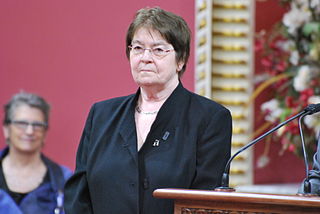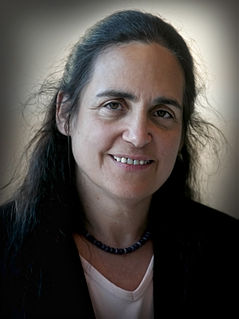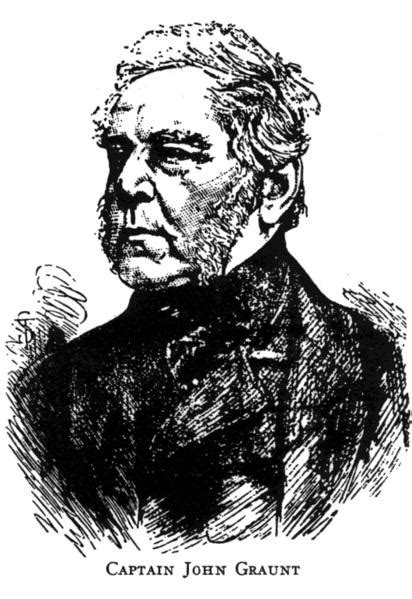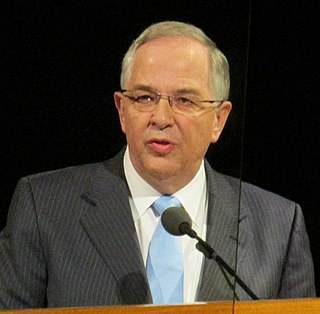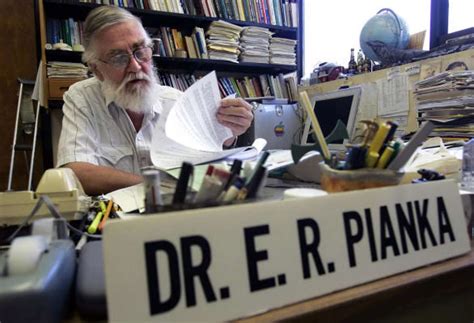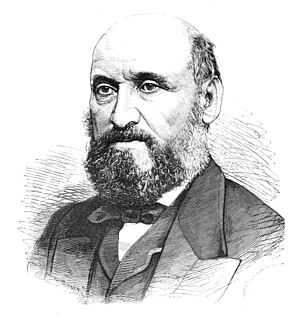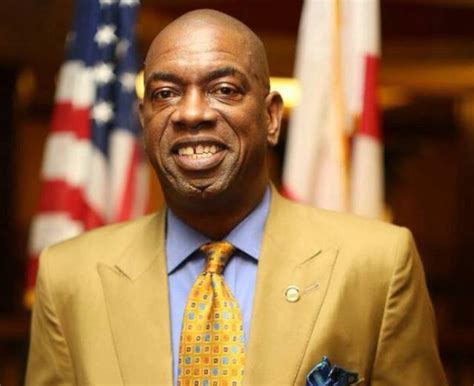Top 929 Mortality In Hamlet Quotes & Sayings - Page 16
Explore popular Mortality In Hamlet quotes.
Last updated on April 17, 2025.
The text moves like a small crustacean with compound eye and complex nervous system; throbbing, involuted, it becomes a parasite on a different body, animal, using ‘filiform protrusions through which it sucks the vital juices of its host.’ Parasite or creature in mutation on the shore, torrid / delirium: mordant mortality, systematic competition the narrator against the I, leaking gas, a lapse of memory against a promise, an inset in a book. A muscular, involuntary bulging in the breast, circling all its inner surface: mesoblast: visceral.
Vampires Are Us: Understanding Our Love Affair with the Immortal Dark Side,” is now out! Quote: “Vampires let us play with death and the issue of mortality. They let us ponder what it would mean to be truly long lived. Would the long view allow us to see the world differently, imagine social structures differently? Would it increase or decrease our reverence for the planet? Vampires allow us to ask questions we usually bury.
I suppose you do think about the time that's allotted to you more than when you were younger. The mortality thing obviously has a stronger pull for you. It's an imminent truth; it's not necessarily a bad thing. You realize - much earlier than my age now - that you won't be able to play for England's football team, just to take a really crass example. So you can't have that life again. Unless you believe in reincarnation or whatever. Reincarnation? That's a whole other question. I find people who talk about that sort of thing in interviews idiotic. And I don't want to go down with them.
As indicated by the increase in maternal mortality in 2010, right now it's more dangerous to give birth in California than in Kuwait or Bosnia. Amnesty International reports that women in [the United States] have a higher risk of dying due to pregnancy complications than women in forty-nine other countries (black women are almost four times as likely to die as white women). The United States spends more than any other country on maternal health care, yet our risk of dying or coming close to death during pregnancy or in childbirth remains unreasonably high.
Having always observed that most of them who constantly took in the weekly Bills of Mortality made little other use of them than to look at the foot how the burials increased or decreased, and among the Casualties what had happened, rare and extraordinary, in the week current; so as they might take the same as a Text to talk upon in the next company, and withal in the Plague-time, how the Sickness increased or decreased, that the Rich might judg of the necessity of their removal, and Trades-men might conjecture what doings they were likely to have in their respective dealings.
We are left with nothing but death, the irreducible fact of our own mortality. Death after a long illness we can accept with resignation. Even accidental death we can ascribe to fate. But for a man to die of no apparent cause, for a man to die simply because he is a man, brings us so close to the invisible boundary between life and death that we no longer know which side we are on. Life becomes death, and it is as if this death has owned this life all along. Death without warning. Which is to say: life stops. And it can stop at any moment.
My young friends, ... not all the whirlwinds in life are of your own making. Some come because of the wrong choices of others, and some come just because this is mortality. You are His son or His daughter. He made your spirit strong and capable of being resilient to the whirlwinds of life. The whirlwinds in your youth, like the wind against a young tree, can increase your spiritual strength, preparing you for the years ahead.
You live as if you were destined to live forever, no thought of your frailty ever enters your head, of how much time has already gone by you take no heed. You squander time as if you drew from a full and abundant supply, so all the while that day which you bestow on some person or thing is perhaps your last. You have all the fears of mortals and all the desires of immortals… What foolish forgetfulness of mortality to defer wise resolutions to the fiftieth or sixtieth year, and to intend to begin life at a point to which few have attained.
War and famine would not do. Instead, disease offered the most efficient and fastest way to kill the billions that must soon die if the population crisis is to be solved. AIDS is not an efficient killer because it is too slow. My favorite candidate for eliminating 90 percent of the world's population is airborne Ebola (Ebola Reston), because it is both highly lethal and it kills in days, instead of years. "We've got airborne diseases with 90 percent mortality in humans. Killing humans. Think about that. "You know, the bird flu's good, too. For everyone who survives, he will have to bury nine
Theater roles are written by the great masters. The greatest literature that you can possibly know are the theater roles like King Lear, Hamlet, and all of those great roles. So all you do is you dive into these unchallenged roles and see how far you can get, what kind of accolades you can get, and how good you can be in them. In movie roles, you can actually improve them by knowing a lot about your own stage technique, which helps a great deal in the cinema and how you can project inner humor even though the particular dialogue is not necessarily funny, but you can infuse it with humor.
The advantages of a uniform statistical nomenclature, however im- perfect, are so obvious, that it is surprising no attention has been paid to its enforcement in bills of mortality. Each disease has in many instances been denoted by three or four terms, and each term has been applied to as many different diseases ; vague, inconvenient names have been employed, or complications have been registered, instead of primary diseases. The nomenclature is of as much importance in this depart- ment of inquiry as weights and measures in the physical sciences, and should be settled without delay.
Each religion is a brave guess at the authorship of Hamlet. Yet, as far as the play goes, does it make any difference whether Shakespeare or Bacon wrote it? Would it make any difference to the actors if their parts happened out of nothingness, if they found themselves acting on the stage because of some gross and unpardonable accident? Would it make any difference if the playwright gave them the lines or whether they composed them themselves, so long as the lines were properly spoken? Would it make any difference to the characters if 'A Midsummer Night's Dream' was really a dream?
As I thought of these things, I drew aside the curtains and looked out into the darkness, and it seemed to my troubled fancy that all those little points of light filling the sky were the furnaces of innumerable divine alchemists, who labour continually, turning lead into gold, weariness into ecstasy, bodies into souls, the darkness into God; and at their perfect labour my mortality grew heavy, and I cried out, as so many dreamers and men of letters in our age have cried, for the birth of that elaborate spiritual beauty which could alone uplift souls weighted with so many dreams.
In your 20s, crises tend to be about whether you are making the correct decisions for the rest of your life, namely in your job and relationship. In your 30s, work-related issues and break-ups feature prominently. In your 40s, for women bereavement is often an issue. For men, it is still to do with their job but it has moved to "Holy crap, I've got a lot to do". In your 50s, you get features of both early and later life crises - bereavement and ill health. And that continues in your 60s, with retirement-related issues and heightened awareness of mortality.
My father left me with the feeling that I had to live for two people, and that if I did it well enough, somehow I could make up for the life he should have had. And his memory infused me, at a younger age than most, with a sense of my own mortality. The knowledge that I, too, could die young drove me both to try to drain the most out of every moment of life and to get on with the next big challenge. Even when I wasn't sure where I was going, I was always in a hurry.
The subtlest change in New York is something people don't speak much about but that is in everyone's mind. The city, for the first time in its long history, is destructible. A single flight of planes no bigger than a wedge of geese can quickly end this island fantasy, burn the towers, crumble the bridges, turn the underground passages into lethal chambers, cremate the millions. The intimation of mortality is part of New York now: in the sound of jets overhead, in the black headlines of the latest edition. (Written in 1949, 22 years before the World Trade Center was completed.)
Even in the tragedies, Shakespeare always put in parts for the comic actors because his audience was mixed. He puts in people who talk like aristocrats. He puts in idiots and fools. He puts in certain middle-range characters. And when you go to the Globe, you realize how that all works. The people who paid more sat in seats around the edge. Everybody else paid a penny. They put it into a tin box - that's why we call it the "box office." They stood in the pit, but they were very close, so when Hamlet was doing his soliloquy, it was addressed to you, the audience - right there.
Yet at the last Beren was slain by the Wolf that came from the gates of Angband, and he died in the arms of Tinúviel. But she chose mortality, and to die from the world, so that she might follow him; and it is sung that they met again beyond the Sundering Seas, and after a brief time walking alive once more in the green woods, together they passed, long ago, beyond the confines of this world. So it is that Lúthien Tinúviel alone of the Elf-kindred has died indeed and left the world, and they have lost her whom they most loved.
People knew there were two ways of coming at truth. One was science, or what the Greeks called Logos, reason, logic. And that was essential that the discourse of science or logic related directed to the external world. The other was mythos, what the Greeks called myth, which didn't mean a fantasy story, but it was a narrative associated with ritual and ethical practice but it helped us to address problems for which there were no easy answers, like mortality, cruelty, the sorrow that overtakes us all that's part of the human condition. And these two were not in opposition, we needed both.
I wanted to get more serialized. I had this idea for an event that would click onto everybody's mortality. I said, "I want somebody to die." Fortunately for me, when I was toying with that idea, John Landgraf, who's the head of FX but also a very smart executive, came up with the idea of the ashes in the maracas. He called me up and said, "Listen, what about this, they get the ashes in a box and when they get them, they shake them and they sound like maracas." And I was like, "Okay, now I've got my throughline."
I believed in belief, for its own shining sake. To believe in the face of utter hopelessness, every article of evidence to the contrary, to ignore apparent catastrophe - what other choice was there? We do it every day, I realized. We are so much stronger than we imagine, and belief is one of the most valiant and long-lived human characteristics. To believe, when all along we humans know that nothing can cure the briefness of this life, that there is no remedy for our basic mortality, that is a form of bravery. To continue believing in yourself, believing in the doctors, believing in thetreatent, believing in whatever I chose to believe in, that was the most important thing.
I had the experience of having my grandmother in a nursing home at the end of her life, and had dementia set in with my father. He was in a nursing home with dementia at the end of his life, but it happened for me personally 10 years ago. My father was much older than my mother, so I experienced it as a pretty young person. People's parents die at various ages, but my father died of mortality. He died of being an old person. Illness and stuff happened, but essentially, he was old and he was going to die.
What I believe is so magnificent, so glorious, that it is beyond finite comprehension. To believe that the universe was created by a purposeful, benign Creator is one thing. To believe that this Creator took on human vesture, accepted death and mortality, was tempted, betrayed, broken, and all for love of us, defies reason. It is so wild that it terrifies some Christians who try to dogmatize their fear by lashing out at other Christians, because tidy Christianity with all answers given is easier than one which reaches out to the wild wonder of God's love, a love we don't even have to earn.
I John Hancock, . . . being advanced in years and being of perfect mind and memory-thanks be given to God-therefore calling to mind the mortality of my body and knowing it is appointed for all men once to die [Hebrews 9:27], do make and ordain this my last will and testament...Principally and first of all, I give and recommend my soul into the hands of God that gave it: and my body I recommend to the earth . . . nothing doubting but at the general resurrection I shall receive the same again by the mercy and power of God. . .
I finally knew... why Christ's prayer in the garden could not be granted. He had been seeded and birthed into human flesh. He was one of us. Once He had become mortal, He could not become immortal except by dying. That He prayed the prayer at all showed how human He was. That He knew it could not be granted showed his divinity; that He prayed it anyhow showed His mortality, His mortal love of life that His death made immortal.
It was apparent to me that religion was an invented thing, a wish-fulfillment thing, a fantasy thing. It was much more real, dangerous, to accept that mortality was the end for you as an individual. As an atheist, I don't believe in an afterlife, so if you're thinking of murder, if your subject is murder, then that's a physical act of absolute destruction because you're ending something, a body, that is unique. That person never existed before, will never exist again, will not be karmically recycled, will not go to heaven, therefore I take it seriously.
Norway, Iceland, Australia, Canada, Sweden, Switzerland, Belgium, Japan, the Netherlands, Denmark, and the United Kingdom are among the least religious societies on earth. According to the United Nations' Human Development Report (2005), they are also the healthiest, as indicated by life expectancy, adult literacy, per capita income, educational attainment, gender equality, homicide rate, and infant mortality. . . . Conversely, the fifty nations now ranked lowest in terms of the United Nations' human development index are unwaveringly religious.
When you have a baby you start thinking of death cuz' you see the opposite of life. I've calmed down now but for the first or two years, I kept thinking: "Oh my God, if I die what's going to happen to the child?" And you realise how vulnerable they are, but how critical your own life is because they're so dependent on you. You do feel your own mortality. I kept saying to myself: "OK, when they're 18, I'll be 'x'; so if they get married at 30, I'll be'x'will I get to see grandchildren?" So, since they've been born I've been thinking about death the whole time.
The idea of flux, kind of constant change, whether it be our sense of time or geological time or cosmic time. It's always there, and I think that maybe it's a way of dealing with the idea of mortality, trying to acknowledge the fact that all things change, and whereas, maybe death is the end of one state of being it's the beginning of something else. I'm not talking about going to heaven or being reincarnated as a toad, I'm talking about the idea that the molecules in our bodies, or at least the atoms, were here at the beginning of the universe, and the sense that we are basically matter.
